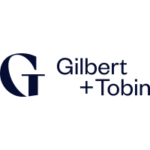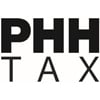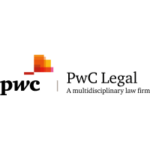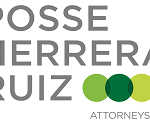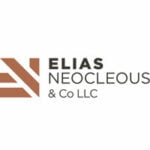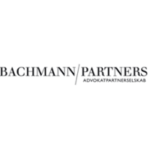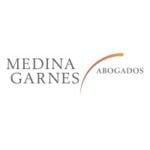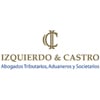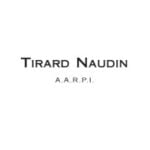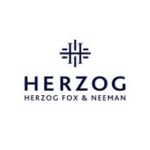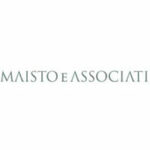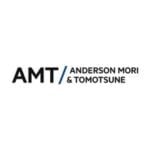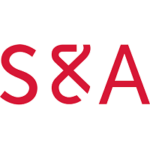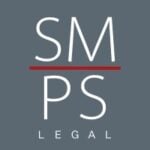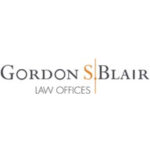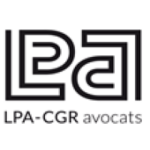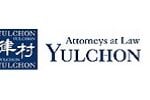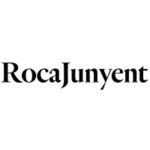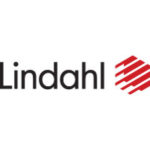-
How often is tax law amended and what is the process?
The Income Tax Act 2023 (“the Act”) governs the income-tax regime in Bangladesh. It came into force on 22nd June 2023 through a gazette notification replacing the previous Income Tax Ordinance 1984. The Act will undergo annual amendment or addition to the law through the Finance Act promulgated every year.
-
What are the principal administrative obligations of a taxpayer, i.e. regarding the filing of tax returns and the maintenance of records?
Every person who earns taxable income must register himself as a taxpayer and the National Board of Revenue shall issue a Taxpayer’s Identification Number (TIN) to such registered taxpayer.1 An annual return of income must be submitted by a person to the Deputy Commissioner of Taxes (“DCT”) for every income year if, among others:2
(a) The person’s total income during the income year exceeds the maximum amount that is not chargeable to tax, or
(b) The person was assessed to tax for any one of the three years immediately preceding that income year, or
(c) The person is a company, a shareholder director or a shareholder employee of a company, a firm, partner of a firm, a private association etc.
In this regard, “income year” is the financial year immediately preceding the tax year and generally means the period from 01 July to 30 June of the relevant year.3 Companies which are subsidiaries, holding companies, branch or liaison offices of a parent company incorporated outside Bangladesh, may follow a different financial year for consolidation of accounts.4 However, this must be approved by the DCT.
The annual returns are submitted in prescribed forms and must be accompanied with prescribed documents,5 such as:
(a) in case of individuals, statements of assets and liabilities if such individual, among others:6
- owns property of more that BDT 40 lac as on the last date of the income year, or
- owns a motor vehicle at any time during the income year, or
- invests in house property or apartment within a city corporation area in the relevant income year, or
- owns any asset abroad at any time during the income year, or
- is a shareholder director of a company, and
(b) in case of companies, an audited statement of accounts, evidence of compliance with criteria prescribed from time to time by the National Board of Revenue for verification, and a computation sheet explaining the difference between the profit or loss shown in the statement of accounts and the income shown in the return.7
Footnotes:
1 Section 261(1) and 261(2) read with Section 2(22) of the Income Tax Act 2023
2 Section 166(1) of the Income Tax Act 2023
3 Section 2(15) of the Income Tax Act 2023
Proviso to Section 2(15) of the Income Tax Act 2023
5 Section 169(1) of the Income Tax Act 2023
6 Section 167(1) of the Income Tax Act 2023
7 Section 169(2) of the Income Tax Act 2023
-
Who are the key tax authorities? How do they engage with taxpayers and how are tax issues resolved?
The key regulatory authority is the National Board of Revenue. It engages with taxpayers by exercising its power to call for information,8 power to inspect business records,9 power of survey10 etc. Tax issues are resolved through the appellate procedure stipulated in the Act.11
Footnotes:
8 Section 200 of the Income Tax Act 2023
9 Section 202 of the Income Tax Act 2023
10 Section 205 of the Income Tax Act 2023
11 Section 285 to Section 295 of the Income Tax Act 2023
-
Are tax disputes heard by a court, tribunal or body independent of the tax authority? How long do such proceedings generally take?
A person aggrieved by an order of an income tax authority may appeal in the following order:
a. Appeal to the Commissioner of Taxes (Appeals) or the Additional Commissioner of Taxes (Appeals).12 The appeal is required to be resolved within 150 days calculated from the end of month on which the appeal is filed.13
b. Appeal to Appellate Tribunal.14 The appeal is required to be resolved within 180 days calculated from the end of month on which the appeal is filed.15
c. Reference to the High Court Division of the Supreme Court of Bangladesh.16 Resolution of tax issues before the High Court Division is a time consuming process and hence, it is difficult to predict any specified period.
d. Appeal to the Appellate Division of the Supreme Court of Bangladesh.17 Resolution of tax issues before the Appellate Division is a time consuming process and hence, it is difficult to predict any specified period.
Footnotes:
12 Section 286 of the Income Tax Act 2023
13 Section 289(7) of the Income Tax Act 2023
14 Section 291 of the Income Tax Act 2023
15 Section 292(6) of the Income Tax Act 2023
16 Section 293 of the Income Tax Act 2023
17 Section 295 of the Income Tax Act 2023
-
What are the typical deadlines for the payment of taxes? Do special rules apply to disputed amounts of tax?
Every person who is required to file an annual return must pay the relevant amount of tax either on or before the day on which he files the return.18 In this regard, the return must be filed on or before the “Tax Day”19 which means:20
(a) in case of an assessee other than a company, 30th November following end of the income year,
(b) in the case of a company, 15th September or 15th day of the seventh month following end of the income year, whichever is later.
For instance, if a company ends its income year on June 30, 2021, then the Tax Day will be the 15th day of the 7th month following end of the income year – which is January 15, 2022. On the other hand, if a company ends its income year on December 31, 2021, then the Tax Day will be July 15, 2022. However, as July 15 is before September 15, thus, the Tax Day will be September 15, 2022 for that company.
(c) in the case of an assessee, who is an individual and has not submitted return before, 30th June following the end of the income year.
(d) In case of an assessee who is an individual and resides abroad, the 90th (ninety) day from the date of his return to Bangladesh, if such individual resides outside Bangladesh:
- on leave for higher education or on deputation or lien for employment,
- on a valid visa and permit for the purpose of earning money.
When a person files a “self-assessment return” in a tax year, he shall be deemed to have automatically completed the assessment of his income, tax and other liability under the Act.21 An assessee is allowed to submit an amended return within 180 days from the date of filing of the original return if the tax payable has been incorrectly calculated or an incorrect amount has been paid.22 The assessee must submit a written statement stating the reasons for the amendment. In such case, the assessee must pay the tax and other sums which were under calculated or under paid before the filing of such amended return in addition to simple interest at the rate of 5% per month on such amount.23 The DCT will then process the return and if such process results in a different amount of income, tax or other material figures than the amount mentioned in the return, then the DCT may issue a notice upon the assessee and give him an opportunity to explain his position.24 The assessee may file an amended return or a revised return and pay the tax or any amount that is payable as per the DCT’s process.
After hearing the assessee and considering all documents, the DCT shall pass a tax assessment order in writing or in a specified electronic method.25 If the assessee is aggrieved with the order, then he may appeal against it.
Footnotes:
18 Section 173(1) of the Income Tax Act 2023
19 Section 171 of the Income Tax Act 2023
20 Section 2(23) of the Income Tax Act 2023
21 Section 180(1) of the Income Tax Act 2023
22Section 180(2) and (3) of the Income Tax Act 2023
23 Proviso to Section 180(2) of the Income Tax Act 2023
24 Section 181(2) and (3) of the Income Tax Act 2023
25 Section 183(7) of the Income Tax Act 2023
-
Are tax authorities subject to a duty of confidentiality in respect of taxpayer data?
All particulars or information contained in the following documents are treated as confidential and cannot be disclosed:26
a. any statement made, return furnished or accounts or documents produced under the provisions of the Act, and
b. any evidence given, or affidavit or deposition made, in the course of any proceedings under the Act, except proceedings relating to offences under the Act, and
c. any record of any assessment proceedings or any proceeding relating to the recovery of demand under the Act.
Accordingly, no Court or other authority is competent to require any public servant to produce before it or give evidence regarding any return, accounts or documents which relates to any proceeding under the Act.27 However, the prohibition on disclosure does not extend to certain documents including the following:28
a. any particulars in respect of any statement, return, accounts, documents, evidence, affidavit or deposition required for the purposes of investigating an offence under the Penal Code 1860, or the Anti-Corruption Commission Act 2004,29
b. any particulars in respect of any statement, return, accounts, documents, evidence, affidavit or deposition required for the purposes of prosecution of any offence under this Act,30
c. any particulars to a Civil Court in any suit which relates to any matter arising out of any proceeding under the Act and to which the Government of Bangladesh is a party,31
d. any particulars relevant to any inquiry into a charge of misconduct in connection with income tax proceedings against a tax lawyer disclosed to any authority empowered to take disciplinary action against such lawyer.32
Footnotes:
26 Section 309(1) of the Income Tax Act 2023
27 Section 309(2) of the Income Tax Act 2023
28 Section 309(3) of the Income Tax Act 2023
29 Section 309(3)(a) of the Income Tax Act 2023
30 Section 309(3)(b) of the Income Tax Act 2023
31 Section 309(3)(f) of the Income Tax Act 2023
32 Section 309(3)(j) of the Income Tax Act 2023
-
Is this jurisdiction a signatory (or does it propose to become a signatory) to the Common Reporting Standard? Does it maintain (or intend to maintain) a public register of beneficial ownership?
Bangladesh is not a signatory to the Common Reporting Standard33 and there have been no public news about its proposal to become a signatory. There is no Register of Beneficial Ownership in Bangladesh. The only register for companies, partnerships etc. is the Register of Joint Stock Companies and Firms (“RJSC”). Although RJSC has an online database, it is not accessible by the general public.
Footnotes:
33 https://www.oecd.org/tax/exchange-of-tax-information/crs-mcaa-signatories.pdf
-
What are the tests for determining residence of business entities (including transparent entities)?
The residential status of a company is determined with reference to two factors:34
a) whether it is a Bangladeshi company (as defined in section 2(61) of the Act) or any other company (as defined in section 2(31) of the Act), and
b) whether the control and management of its affairs are wholly situated in Bangladesh in a year.
Other transparent entities, such as partnerships, firms or other association of persons will be treated as resident if the control and management of their affairs is situated wholly in Bangladesh in that year.35 The term “year” means the financial year from June to July.36
Footnotes:
34 Section 2(45)(c) of the Income Tax Act 2023
35 Section 2(45)(d) of the Income Tax Act 2023
36 Section 2(59) of the Income Tax Act 2023
-
Do tax authorities in this jurisdiction target cross border transactions within an international group? If so, how?
There are no specific data on the policing of cross-border transaction by the tax authority. Generally, cross-border transactions are regulated as “international transactions” under Chapter II, Part 15 of the Act titled “Transfer Pricing”. This chapter governs transactions between “associated enterprises”, either or both of whom are non-residents.37 The amount of any income or expenditure arising from an “international transaction” is determined having regard to the “arm’s length price”,38, which means the price in a transaction, the conditions (e.g. price, margin or profit split) of which do not differ from the conditions that would have prevailed in a comparable uncontrolled transaction between independent entities carried out under comparable circumstances.39
Footnotes:
37 Section 233 of the Income Tax Act 2023
38 Section 234 of the Income Tax Act 2023
39 Section 233(1) of the Income Tax Act 2023
-
Is there a controlled foreign corporation (CFC) regime or equivalent?
There is no controlled foreign corporation (CFC) regime in Bangladesh.
-
Is there a transfer pricing regime? Is there a "thin capitalization" regime? Is there a "safe harbour" or is it possible to obtain an advance pricing agreement?
The transfer pricing regime appears under Chapter II, Part 15 of the Act, as discussed above. However, there is no avenue of executing an advance pricing agreement with the National Board of Revenue. There are different methods whereby the “arm’s length price” of an “international transaction” is determined by applying the most appropriate method(s).40 They are as follows:
a) comparable uncontrolled price method;
b) resale price method;
c) cost plus method;
d) profit split method;
e) transactional net margin method;
f) any other method where it can be demonstrated that-
- none of the methods mentioned in clause (a) to (e) can be reasonably applied to determine the arm’s length price for the international transaction, and
- such other method yields a result consistent with the arm’s length price.
Footnotes:
40 Section 235(1) of the Income Tax Act 2023
-
Is there a general anti-avoidance rule (GAAR) and, if so, how is it enforced by tax authorities (e.g. in negotiations, litigation)?
A new provision regarding avoidance of income tax and tax liability has been introduced in the Act.41
If it appears to the DCT during the course of any proceedings that an assessee has taken tax benefits through abuse of tax arrangement in any income year, then the DCT shall take action and make necessary adjustments against the tax benefits received through such abuse42 through, among others, the following methods:43
a) enhancement of income,
b) amendment of tax liability,
c) adjustment of tax returns,
d) revision of allowances, concessions etc.,
e) any other order withdrawing the tax benefits.
In this regard, the DCT will issue a notice to the assessee specifying his reasons to believe that the assessee has obtained tax benefits through abuse of tax arrangement and seeking submission of relevant statements, documents and information.44 The assessee shall also be given an opportunity to represent himself in a hearing before the DCT.45 Upon consideration of the information submitted by the assessee, the DCT shall issue an adjustment order with prior approval of the Commissioner of Taxes.46
Footnotes:
41 Section 231 of the Income Tax Act 2023
42 Section 231(1) of the Income Tax Act 2023
43 Section 231(2) of the Income Tax Act 2023
44 Section 232(1) of the Income Tax Act 2023
45 Section 232(2) of the Income Tax Act 2023
46 Section 232(3) of the Income Tax Act 2023
-
Is there a digital services tax? If so, is there an intention to withdraw or amend it once a multilateral solution is in place?
There is no separate rate of tax for digital service under the Act. However, income arising directly or indirectly through the sale of any goods or services by any electronic means to purchasers in Bangladesh is deemed to accrue or arise in Bangladesh, and thus, chargeable to tax in Bangladesh.47
Footnotes:
47 Section 27(b)(iv) read with section 26 of the Income Tax Act 2023
-
Have any of the OECD BEPS recommendations, including the OECD’s recent two-pillar solution to address the tax challenges arising from digitalisation of the economy, been implemented or are any planned to be implemented?
By incorporating section 18(2)(d) in the now repealed Income-tax Ordinance 1984 through the Finance Act 2018, Bangladesh tax regime introduced tools to tax e-commerce activities which were posing challenges to cross-border and international taxation methods. In this regard, the OECD BEPS Project noted that the “spread of the digital economy” posed “challenges for international taxation”. It appears that section 18(2)(d) of the now repealed Income-tax Ordinance 1984 had captured the concept of “significant economic presence” for the digital economy as encapsulated in the 2015 Final Report on Action 1 of the OECD BEPS Project.48 The same provision now appears in Section 27(b)(iv) of the Act.
Footnotes:
48 See Junayed A. Chowdhury, Corporate Tax Law & Practice, University Press Limited, 2nd ed, 2021, p. 67
-
How has the OECD BEPS program impacted tax policies?
Please see our answer to question number 14.
-
Does the tax system broadly follow the OECD Model i.e. does it have taxation of: a) business profits, b) employment income and pensions, c) VAT (or other indirect tax), d) savings income and royalties, e) income from land, f) capital gains, g) stamp and/or capital duties? If so, what are the current rates and how are they applied?
The Income Tax Act 2023 has recently replaced the Income Tax Ordinance 1984, which was the progeny of the Income Tax Act 1922 that existed during the period before the independence of Bangladesh and sometime thereafter.
Tax regime and rate of taxation
a) Business profits: The Act prescribes different heads of income for the purpose of charge of income-tax and computation of total income.49 One of the heads of income is “income from business” which is taxable under section 45 of the Act.
The rate of income-tax of different businesses is amended every financial year through promulgation of a Finance Act. The Finance Act 2023 prescribes the following, among others, rates of tax on all types of income of companies (except income from dividend):50
Type of Company Rate of tax Publicly traded company with more than 10% of their paid-up capital listed through Initial Public Offering (IPO) 20% Publicly traded company with 10% or less of their paid-up capital listed through Initial Public Offering (IPO) 22.5% One person company 22.5% Private company 27.5% Bank, insurance companies and financial institutions (except merchant banks) that are publicly traded companies 37.5% Bank, insurance companies and financial institutions (except merchant banks) that are not publicly traded companies 40% Merchant bank 37.5% Tobacco manufacturing companies 45% Mobile operator companies 45% b) Employment income and pensions: Salaries is a head of income that is taxable under the Act51 and it includes pension.52 It is subject to deduction at source, which means the person responsible for paying salaries must, at the time of payment, deduct tax at a rate representing the average of the rates applicable to the estimated total income of the payee under that head.53
The rate of tax on salaries will depend on which of the following income brackets an individual falls on:54
Total income Rate of tax on total income Up to BDT 3,00,000 for all persons 0 For the next BDT 1,00,000 5% For the next BDT 3,00,000 10% For the next BDT 4,00,000 15% For the next BDT 5,00,000 20% For residual income 25% The sum of exempted income for women, and persons who are 65 years old or above is BDT 4,00,000 and the sum of exempted income for persons of the third gender is BDT 4,75,000.55
c) VAT (or other indirect tax): The Value Added Tax and Supplementary Duty Act 2012 (“VAT Act 2012”) governs the imposition of VAT and supplementary duty on taxable imports and supplies. The general rate of VAT is 15% unless a reduced rate is provided under the Third Schedule of the VAT Act 2012.56 On the other hand, supplementary duty is chargeable at the rate prescribed in the Second Schedule of the VAT Act 2012.57
d) Savings income and royalties: Royalty falls under the head of income titled “income from other sources”.58 There is no specific rate of tax payable in respect of royalty. Any sum earned as royalty will be added to a person’s total income and taxable as per the rate provided in the Finance Act 2023. However, when making payment of royalty to a non-resident person which constitutes their income, tax must be deducted at the rate not exceeding 30%.59
With regard to savings, any person responsible for making any interest payment on any savings instruments shall, at the time of such payment, deduct income tax at the rate of 10% on such interest.60 However, this rate may vary depending on the payee of the interest and/or the type of saving deposits.61
e) Income from land: One of the heads of taxable income is “income from rent”.62 In this regard, when a specified person rents a house property, hotel or guest house, vacant premises etc., he must deduct tax from the rent at the rate of 5% at the time of payment of such rent.63 Furthermore, when any person engaged in real estate or land development business pays any sum to the land owner on account of signing money, subsistence money, house rent or any other form for the purpose of development of the land of such owner in accordance with any power of attorney or any agreement or any written contract, such person shall deduct tax at the rate of 15% on the sum so paid to the owner at the time of such payment.64
f) Capital gain: Capital gain is also one of the heads of taxable income in the Act.65 It is payable in respect of any profits and gains arising from the transfer of a capital asset.66 Capital gain is computed as per the method prescribed in section 58 of the Act and the rate of capital gains tax is prescribed under the Seventh Schedule of the Act.67
g) Stamp and/or capital duties: Stamp duty is payable on such instruments and at such rates as prescribed in Schedule I of the Stamp Act 1899.
Footnotes:
49 Section 30 of the Income Tax Act 2023
50 Schedule 2, First Part, Section-Kha, Para 1, Finance Act 2023
51 Section 30(a) of the Income Tax Act 2023
52 Section 32, Explanation (a) of the Income Tax Act 2023
53 Section 86(1) of the Income Tax Act 2023
54 Schedule 2, First Part, Section-Ka, Finance Act 2023
55 Ibid
56 Section 15(3) of the Value Added Tax and Supplementary Duty Act 2012
57 Section 55(4) of the Value Added Tax and Supplementary Duty Act 2012
58 Section 66(a) of the Income Tax Act 2023
59 Section 119(1) of the Income Tax Act 2023
60 Section 105(1) of the Income Tax Act 2023
61 Section 102 of the Income Tax Act 2023
62 Section 30(b) of the Income Tax Act 2023
63 Section 109(1) of the Income Tax Act 2023
64 Section 115 of the Income Tax Act 2023
65 Section 30(e) of the Income Tax Act 2023
66 Section 57 of the Income Tax Act 2023
67 Section 18(5) of the Income Tax Act 2023
-
Is business tax levied on, broadly, the revenue profits of a business computed in accordance with accounting principles?
All income of a person, including the income classifiable under the head “income from business”, must be computed in accordance with the method of accounting regularly employed by such person.68 However, the National Board of Revenue may direct any business or any class of business to maintain accounts and other documents in a specified manner.69 A company must prepare its accounts and financial reports in accordance with International Accounting Standards (IAS), International Financial Reporting Standards (IFRS) and relevant laws of Bangladesh.70
When filing its return for an income year, every company and every firm, private association, fund and any person deriving income from long-term contracts having a turnover exceeding 3 (three) crores must furnish a copy of their income statement and affidavit which are certified by a chartered accountant to the effect that:71
a. accounts have been maintained and returns prepared and filed in accordance with International Accounting Standards (IAS), International Financial Reporting Standards (IFRS) and relevant laws in force in Bangladesh for the said tax year, and
b. the criteria prescribed by the National Board of Revenue, from time to time, have been followed, and
c. Accounts have been audited in accordance with International Standards on Auditing (ISA).
The National Board of Revenue has the power to disregard any return, statement or document furnished by a taxpayer if they are not verifiable.72 The DCT may compute the income of the taxpayer in such manner as he thinks fit for any of the following reasons:73
a. no conventional method of accounting has been followed, or
b. the DCT is not satisfied as to the correctness or completeness of the taxpayer’s accounts, or
c. the accounts of the taxpayer have not been prepared and maintained in accordance with the accounting requirements as prescribed in the Act.
Footnotes:
68 Section 72(1) of the Income Tax Act 2023
69 Section 72(3) of the Income Tax Act 2023
70 Section 72(4) of the Income Tax Act 2023
71 Section 73 of the Income Tax Act 2023
72 Section 75(1) of the Income Tax Act 2023
73 Section 75(2) of the Income Tax Act 2023
-
Are common business vehicles such as companies, partnerships and trusts recognised as taxable entities or are they tax transparent?
There are different vehicles for carrying out business but their tax treatment is different. For instance, a company is a separate legal entity which is taxed separately from its shareholders. But a partnership firm (whether registered or unregistered) is a transparent entity which is not taxed since it is not a separate legal entity. Rather, the partners of a firm or association of persons are taxed for their share in the income of that firm or association.74 Both companies and partnership firms are used as vehicles for commercial business activities. A trust is also a transparent entity but it is most often used by non-government organizations (NGO’s) undertaking philanthropic activities. On the other hand, a person may run a commercial business under a sole proprietorship whereby the income of the person is taxed as an individual.
Footnotes:
74 Section 31(1)(a) of the Income Tax Act 2023
-
Is liability to business taxation based on tax residence or registration? If so, what are the tests?
Both residents and non-residents are liable to pay tax on total income in a year that:75
a) is received or deemed to be received in Bangladesh by or on behalf of such person, or
b) accrues or arises, or is deemed to accrue or arise to him in Bangladesh.
Residents are additionally liable to pay tax on income that accrues or arises to them outside Bangladesh and/or is received or deemed to be received by or on behalf of such person outside Bangladesh during that year.76 With regard to a business, the following income, among others, is deemed to accrue or arise in Bangladesh:
c) any income accruing or arising, directly or indirectly, through or from:77
- any permanent establishment in Bangladesh, or
- any intangible property, property, right or other source of income existing in Bangladesh, or
- the transfer of any assets situated in Bangladesh, or
- the sale of any goods or services by any electronic means to purchasers in Bangladesh, or
- any intangible property used in Bangladesh,
d) if the shares of a non-resident company are transferred and if the company has any assets in Bangladesh, then, regardless of where the share transfer takes place, the value of the transferred shares that is related to the value of any assets located in Bangladesh shall be deemed to be a transfer of assets located in Bangladesh,78
e) any dividend paid outside Bangladesh by a Bangladeshi company.79
In determining the existence of a “permanent establishment” in Bangladesh, one must consider any double taxation avoidance agreement between Bangladesh and the relevant foreign country.80 If no such agreement exists, then the definition of “permanent establishment” provided in the Act81 will be employed.
Footnotes:
75 Section 26 of the Income Tax Act 2023
76 Ibid.
77 Section 27(b) of the Income Tax Act 2023
78 Section 27(c) of the Income Tax Act 2023
79 Section 27(d) of the Income Tax Act 2023
80 Section 244 of the Income Tax Act 2023
81 Section 2(92) of the Income Tax Act 2023
-
Are there any favourable taxation regimes for particular areas (e.g. enterprise zones) or sectors (e.g. financial services)?
There are a number of favourable taxation regimes under the Act, such as:
a) Business income of any approved tax holiday entity which is located in Bangladesh and which commenced commercial production between July 2020 and June 2025, shall be tax exempted for specified periods and at specific rates.82 There are different categories of approved tax holiday entities including manufacturers of active pharmaceutical ingredient and radio pharmaceuticals, automobile etc.83
b) Business income of any approved tax holiday entity located in Bangladesh, which provides physical infrastructure facilities and commenced commercial production within June 2024, shall be tax exempted for specified periods and at specific rates.84 The categories of physical infrastructure facilities include deep sea port, sea port, river port, elevated expressway etc.85
c) If any sum is invested by a company in any economic zone86 or in any hi-tech park87 for setting up an industrial undertaking engaged in producing goods or services therein within the period from 01 July 2019 and 30 June 2024, then no question shall be raised as to the source of such sum if tax at the rate of 10% is paid on the sum so invested before filing of the return for the concerned income year.88
Furthermore, the Government of Bangladesh has issued Statutory Regulatory Order (SRO) granting tax exemption to certain private power generation companies for specified periods and at specific rates.
Footnotes:
82 Schedule 6, Part 4, Para 1 and 2 of the Income Tax Act 2023
83 Schedule 6, Part 4, Para 1 of the Income Tax Act 2023
84 Schedule 6, Part 4, Para 3 and 4 of the Income Tax Act 2023
85 Schedule 6, Part 4, Para 3 of the Income Tax Act 2023
86 Economic zone as declared under section 5 of the Bangladesh Economic Zones Act 2010
87 Hi-tech park as declared under section 22 of the Bangladesh Hi-Tech Park Authority Act 2010
88 Schedule 1, Part 1, Para 2 of the Income Tax Act 2023
-
Are there any special tax regimes for intellectual property, such as patent box?
The term “royalty” is defined as including consideration for transfer of all or any rights, including the granting of a licence, in respect of a patent, industrial design, trademark or other intellectual property.89 If any payment is to be made on account of royalties, patent, franchise, license, copyright, trademark etc., then the person responsible for making payment shall, at the time of making payment, deduct income tax at the rate of 10% (where the amount does not exceed BDT 25,00,000) and 12% (where the base amount exceeds BDT 25,00,000).90
However, the following companies are exempted from withholding tax on payment of royalties:
a) Any company engaged in manufacturing of goods or supply of services at any Economic Zone91 is provided withholding tax exemption on royalties payable by such companies for a period of 10 years calculated from the date of start of commercial activities,92
b) Any private power generation company (except coal based power generation companies) whose commercial production would begin on or before 31 December 201493 or between 01 January 2020 to 31 December 202294 (pursuant to the terms and conditions of Private Sector Power Generation Policy of Bangladesh), would enjoy withholding tax exemption on royalties payable by such company,
c) Any project company incorporated under section 22 of the Public private Partnership Act 2015 and engaged in specified projects95 is provided with withholding tax exemption on royalties payable by such project company for 10 years from the date of commercial activities of the project company,96
d) Any company engaged in manufacturing of goods or supply of services at any Hi-Tech Park97 will be provided with withholding tax exemption of 50% on royalties payable by such company for 10 years from the start of commercial activities.98
Footnotes:
89 Section 2(79)(a) of the Income Tax Act 2023
90 Section 91 of the Income Tax Act 2023
91 Economic Zone declared and established under sections 4 and 5 of the Bangladesh Economic Zones Act 2010
92 SRO No. 299-Ain/Ayekor/2015 dated 08.10.2015
93 SRO No. 211-Ain/Ayekor/2013 dated 01.07.2013
94 SRO No. 05-Ain/Ayekor/2020 dated 02.01.2020
95 The PPP Projects are National Highway or Expressway and related Service Roads, Flyovers, Elevated and At-Grade Expressways, River Bridges, Tunnels, River port, Sea port, Airport, Subway, Monorail, Railway, Bus Terminals, Bus Depots and Elderly care home
96 SRO No. 209-Ain/Ayekor/2017 dated 21.06.2017
97 Hi-Tech Park established under Bangladesh Hi-Tech Park Authority Act 2010
98 SRO No. 301-Ain/Ayekor/2015 dated 08.10.2015
-
Is fiscal consolidation permitted? Are groups of companies recognised for tax purposes and, if so, are there any jurisdictional limitations on what can constitute a tax group? Is there a group contribution system or can losses otherwise be relieved across group companies?
In computing the income of an assessee under the head of “income from business”, a number of allowances and deductions are admissible under the Act.99 However, any expenditure exceeding 10% of the net profit disclosed in the statement of accounts of a company not incorporated in Bangladesh by way of head office or intra-group expense (called by whatever name) is disallowed as deduction.100 The Act puts an upper limit of expenses of branch-company or branch office operating in Bangladesh on account of head office, intra-group or any similar type of expenses. The words “head office expenses” or “intra-group expenses” are not defined in the Act. If a branch office has its head office in New York and another associate office in London, then any expense on account of the New York Office will be head office expense and any expenditure on account of its London office (for example, management expenditure) will be intra-group expense.101
This restriction will not apply if there is a Double Taxation Avoidance Agreement which will take precedence in determining both the expense and income of a foreign company which is a permanent establishment in a contracting state.102
Footnotes:
99 Section 49 of the Income Tax Act 2023
100 Section 55(f) of the Income Tax Act 2023
101 See Junayed A. Chowdhury, Corporate Tax Law & Practice, University Press Limited, 2nd ed, 2021, p. 301
102 Standard Chartered Bank v Commissioner of Taxes 2 CLR (HCD) (2014) 80
-
Are there any withholding taxes?
Different provisions in the Act deal with deduction or collection of tax at source. The following income, among others, are subject to tax deduction at source:
income from employment,103
income from discount on the real value of Bangladesh Bank bills,104
income from interest on securities,105
income derived on account of supply of goods, execution of contracts for services rendered, production, printing,106
income derived by the importers on account of import of goods,107
income derived on account of winnings from lottery, crossword puzzles, card game, online game, or similar games,108
any income chargeable under the Act which is paid or payable to a non-resident,109
income from rent of house property, hotel or guest house, vacant premises, plant or machinery etc.,110
income derived on account of export of manpower,111
income derived on account of travel agency commission,112
income derived on account of purchase by public auction,113
income derived on account of acting in films etc.,114
income derived on account of shipping business,115
income derived from commission, discount or fees payable to distributors for distribution or marketing of goods and services,116
income derived on account of interest on saving deposits, fixed deposits, term deposits or any other type of deposit,117
income derived on account of payment from workers’ participation fund,118
income derived on account of insurance commission,119
income derived on account of fees for services,120
income derived on account of manufacture of cigarettes,121
income derived from compensation against acquisition of property,122
income derived on account of brick manufacturing,123
income derived on account of commission of letter of credit,124
income derived on account of survey by a surveyor of general insurance company,125
income derived on account of commission or remuneration as a foreign buyer’s agent,126
income from dividends,127
income derived on account of business of real estate and land developer,128
income derived by an exporter on account of export of any commodity,129
income derived by a member of a stock exchange on account of transaction of shares, debentures, mutual funds, bonds or securities,130
income derived on account of export cash subsidy,131
on account of grant or renewal of trade licence,132
income derived on account of freight forward agency commission,133
income derived on account of interest of Post Office Savings Bank Account,134
income derived on account of advertisement,135
income derived from transfer of securities,136
deduction of tax for services from convention hall, conference centre, etc.,137
income derived on account of international gateway service in respect of phone call,138
income derived from any payment in excess of premium paid on life insurance policy,139
deduction of tax from commission on account of local letter of credit (L/C),140
income derived from lease of property,141
deduction of tax from any sum paid by real estate developer to land owner,142
income derived from the operation of inland ships,143
income derived from the operation of commercial vehicles.144
Footnotes:
103 Section 86 of the Income Tax Act 2023
104 Section 107 of the Income Tax Act 2023
105 Section 106 of the Income Tax Act 2023
106 Section 89 of the Income Tax Act 2023
107 Section 120 of the Income Tax Act 2023
108 Section 118 of the Income Tax Act 2023
109 Section 119 of the Income Tax Act 2023
110 Section 109 of the Income Tax Act 2023
111 Section 121 of the Income Tax Act 2023
112 Section 95 of the Income Tax Act 2023
113 Section 133 of the Income Tax Act 2023
114 Section 93 of the Income Tax Act 2023
115 Section 132 of the Income Tax Act 2023
116 Section 94 of the Income Tax Act 2023
117 Section 102 of the Income Tax Act 2023
118 Section 88 of the Income Tax Act 2023
119 Section 100 of the Income Tax Act 2023
120 Section 90 of the Income Tax Act 2023
121 Section 129 of the Income Tax Act 2023
122 Section 111 of the Income Tax Act 2023
123 Section 130 of the Income Tax Act 2023
124 Section 96 of the Income Tax Act 2023
125 Section 101 of the Income Tax Act 2023
126 Section 116 of the Income Tax Act 2023
127 Section 117 of the Income Tax Act 2023
128 Section 126 of the Income Tax Act 2023
129 Section 123 of the Income Tax Act 2023
130 Section 137 of the Income Tax Act 2023
131 Section 112 of the Income Tax Act 2023
132 Section 131 of the Income Tax Act 2023
133 Section 113 of the Income Tax Act 2023
134 Section 103 of the Income Tax Act 2023
135 Section 92 of the Income Tax Act 2023
136 Section 135 of the Income Tax Act 2023
137 Section 110 of the Income Tax Act 2023
138 Section 108 of the Income Tax Act 2023
139 Section 99 of the Income Tax Act 2023
140 Section 97 of the Income Tax Act 2023
141 Section 128 of the Income Tax Act 2023
142 Section 115 of the Income Tax Act 2023
143 Section 139 of the Income Tax Act 2023
144 Section 138 of the Income Tax Act 2023
-
Are there any environmental taxes payable by businesses?
There are no recognized environmental taxes payable by businesses under the Act. However, the Environment, Forest and Climate Change Ministry is considering investment tax exemption for environment-friendly equipment and resources and income tax exemption for green service providers to minimise environmental pollution.145
The Finance Act 2023 has imposed environment surcharge on all assessees having more than one motor car and such surcharge is payable at the following rates:146
Engine capacity of motor car Rate Up to 1500cc or 75 kW BDT 25,000 Exceeding 1500cc but not 2000cc or exceeding 75 kW but not 100 kW BDT 50,000 Exceeding 2000cc but not 2500cc or exceeding 100 kW but not 125 kW BDT 75,000 Exceeding 2500cc but not 3000cc or exceeding 125 kW but not 150 kW BDT 150,000 Exceeding 3000cc but not 3500cc or exceeding 150 kW but not 175 kW BDT 200,000 Exceeding 3500cc or 175 kW BDT 350,000 Footnotes:
145 https://www.dhakatribune.com/bangladesh/2022/01/11/minister-green-tax-under-consideration-to-control-pollution (accessed on 30 September 2022)
146Schedule 2, Part 3 of the Finance Act 2023
-
Is dividend income received from resident and/or non-resident companies taxable?
Dividend income is taxable under the Act. As per section 117 of the Act, when paying dividend to a resident or non-resident shareholder, a company must deduct tax at the following rate:
a) if the shareholder is a company, at the rate applicable to a company,
b) if the shareholder is a person other than a company, at the rate of 10% where the person receiving such dividend furnishes his 12-digit TIN to the payer or 15% where the person receiving such dividend fails to furnish his 12-digit TIN to the payer.
However, distribution of taxed dividend to a company will be exempt from tax if the company distributing such taxed dividend has maintained separate account for such taxed dividend.147 Further, a specified person or any other person responsible for making payment of dividend to a non-resident, which constitutes the income of such non-resident chargeable to tax under the Act, must deduct tax at source at the following rates:148
a) 20% in case of a company, fund and trust, and
b) 30% in case of any other person not being a company, fund and trust.
Footnotes:
147 Clause 32, Part 1, Sixth Schedule of the Income Tax Act 2023
148 Section 119(1) read with Rule 5(1) of the Deduction of Tax at Source Rules 2023
-
What are the advantages and disadvantages offered by your jurisdiction to an international group seeking to relocate activities?
Bangladesh presents one of the most liberal foreign direct investment regimes in the South Asia region. Given the size of the economy (Bangladesh is the 35th largest in the world in nominal terms or at current prices149), a young population and the geographical proximity to the Bay of Bengal, the country poses exciting opportunities for new entrants to the market. The Bangladesh Government has been extremely forthcoming about its plans to open up the market for international investors in areas such as real estate, telecommunication (including satellite), power and infrastructure and technology. The only problem in Bangladesh, like any other emerging economy, is the tension between bureaucratic contraction and political will for liberalization.
Footnotes:
149 https://www.dhakatribune.com/bangladesh/302119/bangladesh-now-35th-largest-economy-in-the-world
Bangladesh: Tax
This country-specific Q&A provides an overview of Tax laws and regulations applicable in Bangladesh.
-
How often is tax law amended and what is the process?
-
What are the principal administrative obligations of a taxpayer, i.e. regarding the filing of tax returns and the maintenance of records?
-
Who are the key tax authorities? How do they engage with taxpayers and how are tax issues resolved?
-
Are tax disputes heard by a court, tribunal or body independent of the tax authority? How long do such proceedings generally take?
-
What are the typical deadlines for the payment of taxes? Do special rules apply to disputed amounts of tax?
-
Are tax authorities subject to a duty of confidentiality in respect of taxpayer data?
-
Is this jurisdiction a signatory (or does it propose to become a signatory) to the Common Reporting Standard? Does it maintain (or intend to maintain) a public register of beneficial ownership?
-
What are the tests for determining residence of business entities (including transparent entities)?
-
Do tax authorities in this jurisdiction target cross border transactions within an international group? If so, how?
-
Is there a controlled foreign corporation (CFC) regime or equivalent?
-
Is there a transfer pricing regime? Is there a "thin capitalization" regime? Is there a "safe harbour" or is it possible to obtain an advance pricing agreement?
-
Is there a general anti-avoidance rule (GAAR) and, if so, how is it enforced by tax authorities (e.g. in negotiations, litigation)?
-
Is there a digital services tax? If so, is there an intention to withdraw or amend it once a multilateral solution is in place?
-
Have any of the OECD BEPS recommendations, including the OECD’s recent two-pillar solution to address the tax challenges arising from digitalisation of the economy, been implemented or are any planned to be implemented?
-
How has the OECD BEPS program impacted tax policies?
-
Does the tax system broadly follow the OECD Model i.e. does it have taxation of: a) business profits, b) employment income and pensions, c) VAT (or other indirect tax), d) savings income and royalties, e) income from land, f) capital gains, g) stamp and/or capital duties? If so, what are the current rates and how are they applied?
-
Is business tax levied on, broadly, the revenue profits of a business computed in accordance with accounting principles?
-
Are common business vehicles such as companies, partnerships and trusts recognised as taxable entities or are they tax transparent?
-
Is liability to business taxation based on tax residence or registration? If so, what are the tests?
-
Are there any favourable taxation regimes for particular areas (e.g. enterprise zones) or sectors (e.g. financial services)?
-
Are there any special tax regimes for intellectual property, such as patent box?
-
Is fiscal consolidation permitted? Are groups of companies recognised for tax purposes and, if so, are there any jurisdictional limitations on what can constitute a tax group? Is there a group contribution system or can losses otherwise be relieved across group companies?
-
Are there any withholding taxes?
-
Are there any environmental taxes payable by businesses?
-
Is dividend income received from resident and/or non-resident companies taxable?
-
What are the advantages and disadvantages offered by your jurisdiction to an international group seeking to relocate activities?
